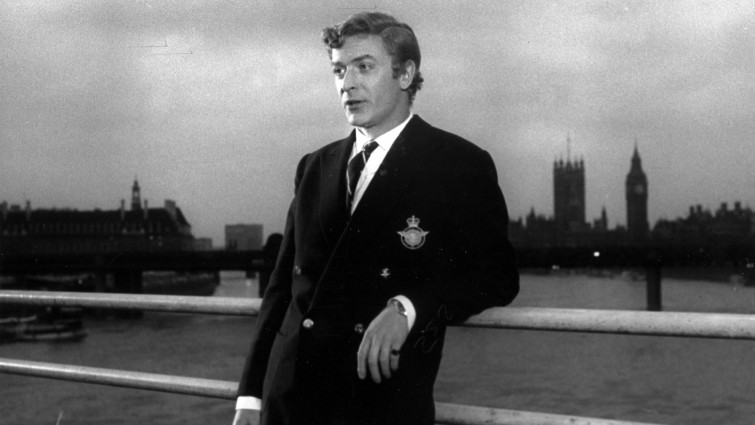

Member review

Alfie
Michael Caine plays the ultimate ladies' man who's about to start reflecting on his lifestyle in this well-known portrait of swinging...
Certificate
Duration109 mins
Review by
-
 Archie, 16
Archie, 16 - 174 reviews
I really don't know "What it's all about Alfie!"
From his iconic performance in “The Italian Job” to his role as the most cockney-sounding Nazi ever in “The Eagle Has Landed” and his appearance in nearly every single Christopher Nolan movie, Sir Michael Caine has proved himself time and time again as one of the greatest actors of his generation. Despite his notable appearance in “Zulu” and his starring role in “The Ipcress File”, the 1966 drama “Alfie” is seen as the main film that’s responsible for Caine’s rise to stardom.
It’s difficult to describe “Alfie.” It’s described as a comedy, but it’s not particularly funny, it might be a character study, delving into the psychology of a selfish man, but we never really learn much about Alfie and what created his untrustworthy mind-set. It could be viewed as a cautionary tale, to warn viewers that Alfie’s womanizing and self-serving lifestyle is dangerous, but the ending is too upbeat, showing us that Alfie hasn’t really got his comeuppance. So whilst I did like the film, it’s hard to put my finger on what exactly this movie is and what it’s trying to say about the “swinging” 60s.
Of course, Michael Caine is terrific here, the entire film hangs on him so this is definitely one of his more noteworthy performances. Caine manages to effortlessly balance the charming side of Alfie with the volatile and sociopathic one that bursts out at times. Even though the character does some really awful things to those around him, Caine has such a magnetic screen personality that you don’t despise his character, no matter how despicably he behaves.
The direction by Lewis Gilbert is excellent. I never realised what a great director Gilbert is, even though I’ve seen several of his films, I never connected the dots between his compelling dramas (e.g. “Educating Rita”) and the gargantuan “007” movies he helmed. It’s mind-boggling to think that the first film that he went on to direct after “Alfie” was “You Only Live Twice”, one of the most technically astonishing movies in the “James Bond” franchise.
The rest of the technical features in “Alfie” are all solid, the editing is surprisingly fast-paced and the jazzy score brilliantly captures the aesthetic of the 1960s.
One of the more unique aspects of “Alfie” is that the titular character breaks the fourth wall constantly. This immediately set the film above many other romantic dramas because instead of lazily utilising voiceover, the fourth wall breaks gives the audience more of an understanding of Alfie as a character. The film never reaches a “Deadpool” level of self-awareness (Alfie doesn’t seem to know that he’s in a movie), but allowing Alfie to speak directly to the audience gave the film an extra layer of depth.
My main point of contention with “Alfie” is that due to the title character never learning his lesson (although Alfie delivers a heartfelt monologue to the audience at the end, I’m not convinced he’d actually change his ways), the messaging of the film is a bit unclear, as I mentioned earlier. In most “old” movies (like “Angel Face” or “Doctor Zhivago”) if a character commits adultery, they are doomed to misery or a horrible death, so I was taken aback that despite him using then dumping about a dozen women during the film, Alfie comes away from the movie pretty much unscathed. I expected either one of his “girlfriends” would commit suicide, or another would die after her abortion and I wouldn’t have been surprised if Alfie threw himself off the bridge at the end of the film. Instead, Alfie gets to go for a walk with a dog, which seems like a happy ending if you ask me!
In conclusion, “Alfie” is a well-constructed drama with a fantastic central performance from Michael Caine. I would recommend this film to others, but the confused themes and messages of the movie make it difficult to work out whether or not this is a good film or just an ok one.